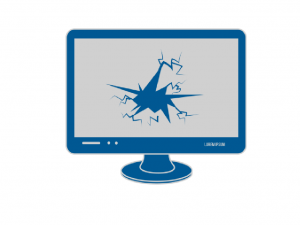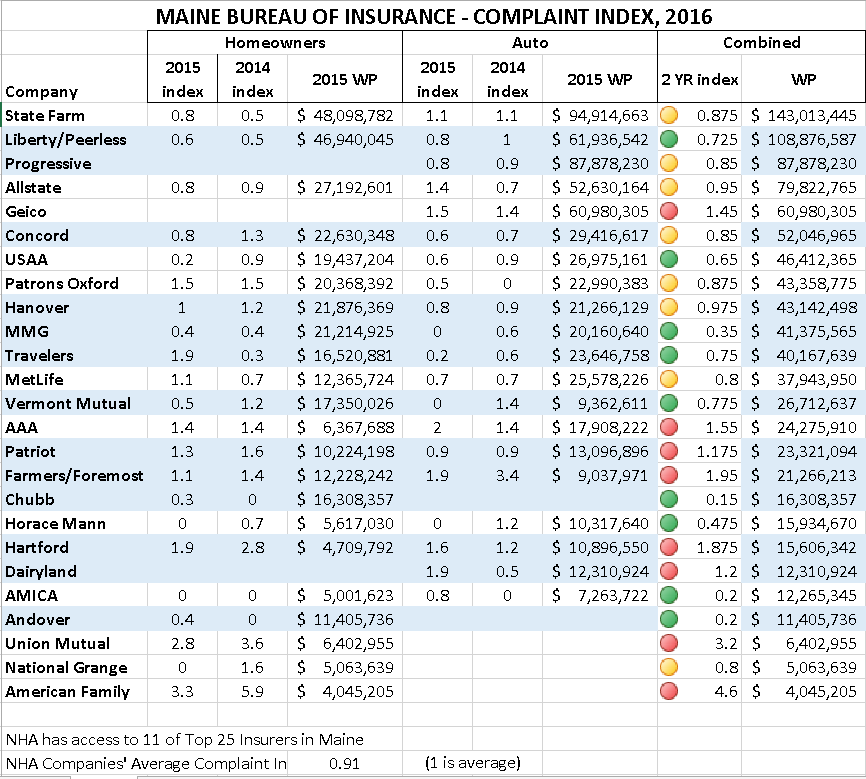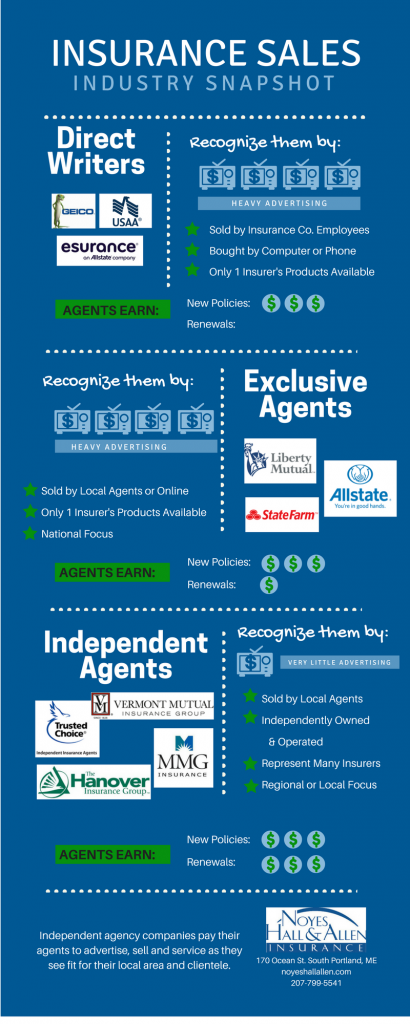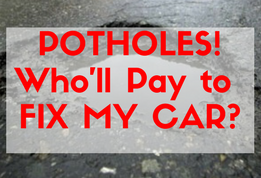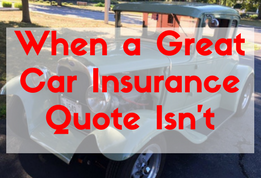It seems every week Portland, Maine appears on some “best of” list. Best restaurant and foodie towns, best places to retire, best small city, and so on.
College graduates want to live in Portland for the food, drink, entertainment and active sports scene. Retirees and empty-nesters relocate here for cultural options and top-shelf medical facilities. Portland, Maine is big enough to keep you busy, small enough to find your “tribe”, and see them often about town.
Many new Portland Maine residents want to be “on the peninsula”. Portland’s downtown is flanked by hills overlooking the east and west ends, and water access on the north and south. Almost anywhere on the peninsula, you can walk from grocery to gallery, beach to brewery, or concert hall to coffee shop. And you can’t spin a lobster without pointing to a restaurant.
What’s the Best Neighborhood in Portland Maine?
With so many great neighborhoods, it’s more about finding the best fit for you. We’ve broken down the choices to help you decide where to look. All the neighborhoods are in Portland, unless noted.
Portland, Maine Neighborhoods With Lots of Restaurants (walking distance):
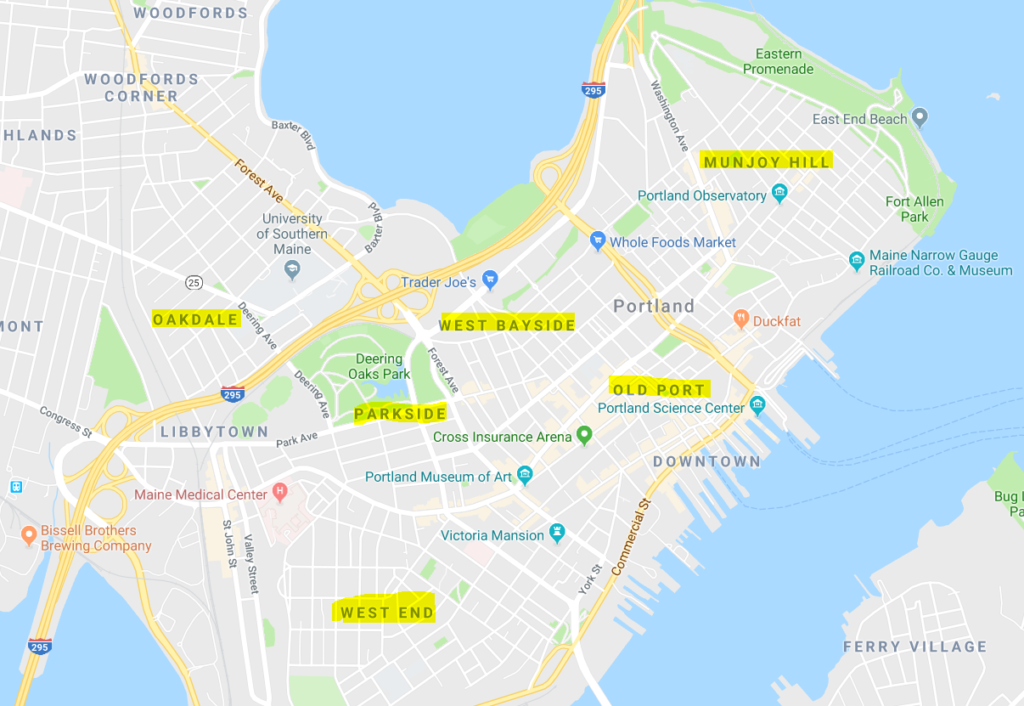
- Munjoy Hill
- Newbury / India Street
- Old Port
- Meeting House Hill (South Portland)
Portland Nightlife and Music Venue Neighborhoods:
- Old Port
- Congress St – mid-town
- Longfellow Square
Portland Neighborhoods Near Beaches and Trails:
- Baxter Boulevard
- Newbury / India Street
- Ferry Village / Willard Square (South Portland)
- Munjoy Hill
Portland Area Neighborhoods to Live Car-Free:
- Knightville (South Portland)
- Bayside & Parkside
- Congress St. – mid-town
- Longfellow Square
Portland, Maine Residential Neighborhoods:
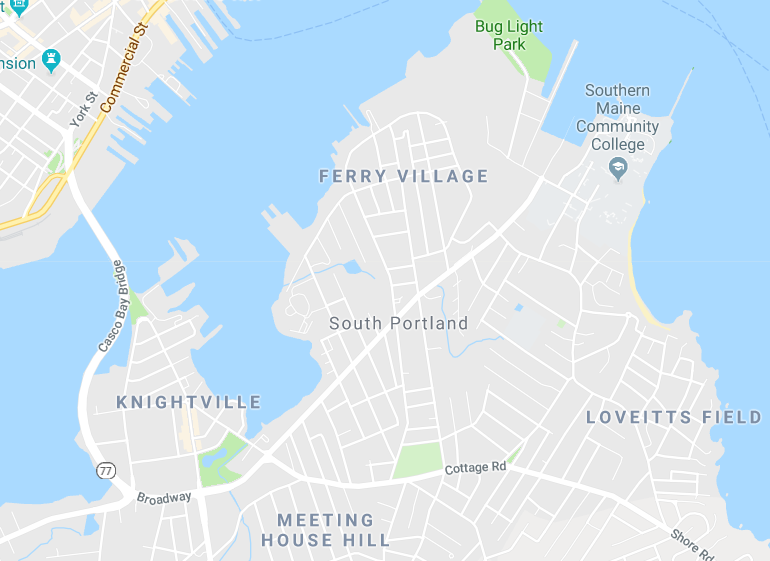
- Oakdale
- West End
- Ferry Village (South Portland)
- Meeting House Hill / Willard Square (South Portland)
Less Congested Neighborhoods That Are Close to Downtown Portland:
- Deering Center / Rosemont
- North Deering
- Ferry Village (South Portland)
- Meeting House Hill (South Portland)
- Peaks Island
Portland Maine Suburbs With Cheaper Rents:
- Westbrook
- Old Orchard Beach
- Redbank / Brick Hill (South Portland)
- Riverton
Portland Neighborhoods With Older Apartments with Character:
- West End
- Oakdale
- Deering Center
- Old Port
Sleek New Apartments and Condos:
- Munjoy Hill
- Newbury / India Streets
- Bayside
- Commercial St.
What’s the Cost of Living in Portland Maine?
Like many popular coastal cities, Portland Maine’s cost of living is above average. But, it’s about 50% less than New York and almost 30% less than Boston. Housing is the biggest outlier in our cost of living: about 57% higher than the U.S. average. You might need to compromise on your “wish list” to find a place you can afford. And, because it’s so popular, it’s a seller’s market right now. If you see a great house, condo or apartment, it likely won’t be on the market for long.
RELATED: How to Register a Vehicle in Maine
Moving to Portland, Maine?
You’re going to love it! We’ve been here since 1933, and are proud to be active in our community. We sponsor local non-profits and events. We champion fellow small businesses. We volunteer and buy local. Find us in the Knightville / Mill Creek area of South Portland, across the Casco Bay Bridge from Portland. We love to share our knowledge about the place we call home.

Need insurance for your car, apartment, boat, snowmobile, home or condo? Contact a Noyes Hall & Allen agent at 207-799-5541. We represent many insurers and can compare rates and coverage to find you the best value. We’re independent and committed to you.
Not ready to talk to an insurance agent? You can get real insurance quotes online in 10 minutes from our website.


